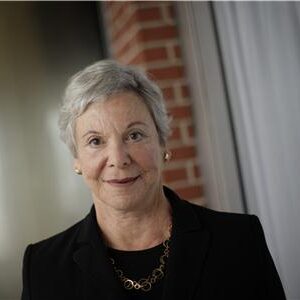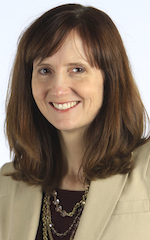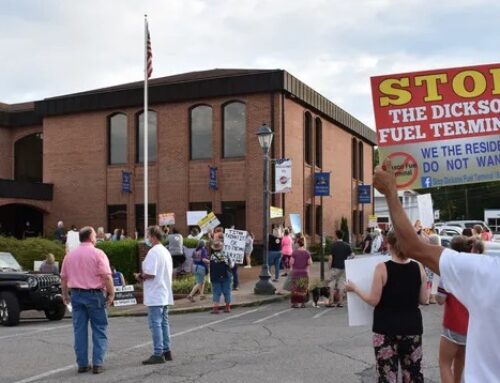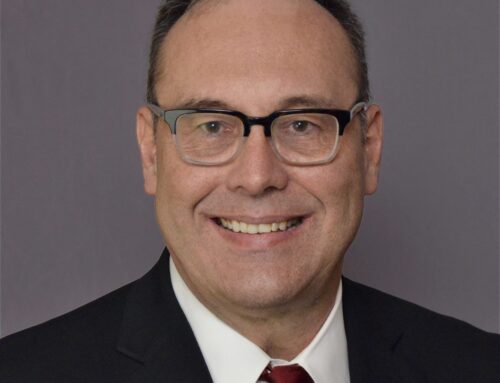Private meetings on Chattanooga redistricting violated open meetings law, lawsuit alleges
A redistricting committee made up of Chattanooga city councilmembers violated the open meetings act when it convened private meetings to make decisions and deliberate on the city’s new voting district maps, a lawsuit alleges.
The lawsuit by the Chattanooga Times Free Press also alleges that councilmembers violated the open meetings act when the city’s executive staff, at the request of the redistricting committee, met individually with council members to decide on the contours of each of their new districts.
Consensus reached in private on redistricting
By the time the map was presented in a public meeting on March 1, the city’s executive staff believed it had reached a consensus among the city council members on the new maps.

Chattanooga Councilwoman Carol Berz led a redistricting committee of city council members that held private meetings and instructed city staff to hold private meetings with individual council members to come up with new voting maps.
“I think I’ve spent a lot of time with each of you making changes that you wanted to your districts. We’re happy to make more if you want them, but the last word I have from every member of the Council is that you’re fine with this,” Chris Anderson, then the mayor’s administrator of innovation delivery and performance, told the council.
A public meeting was held March 29 where members were permitted to comment on the proposed map. Then at the council’s public April 19 meeting, the staff presented a new map, explaining boundaries of three districts needed to be changed because of underlying errors in data on the first map.
“At no point was the public privy to the deliberations and decisions made by the Redistricting Committee and during the individual meetings with members of the City Council that were critical to developing the redistricting map presented at the March 1, 2022, City Council Strategic Planning Session, or the deliberations and decisions of Councilmembers made prior to the presentation of a new redistricting map at the Council’s public Agenda meeting on April 19, 2022,” the lawsuit says.
No public notice was given of redistricting committee’s meetings, and no minutes were kept.
Lawsuit: Meetings on new voting districts circumvented open meetings act
The “deliberations and decision-making” in the closed individual meetings with the mayor’s executive staff “were the types of discussion, deliberation, and decision-making that would be expected to take place, and, under the (Open Meetings Act), are required to take place at a properly noticed meeting, in which the presence of the public and either the entire Redistricting Committee or the City Council as a whole,” the lawsuit says.
Such “informal assemblages” used “to decide and deliberate public business” circumvent the specific requirements and the spirit of the open meetings law.
The city has not replied to the lawsuit in court yet, but the chairwoman of the redistricting committee, Carol Berz, has told the Times Free Press in an email that she and three other members of the committee “occupied the same space in the Mayor’s large conference room, where Mr. Anderson and his folks educated us regarding the law relative to redistricting and the City demographics resultant of the 2020 census.”
As to the meetings with individual council members about creating new boundaries of their voting districts, the city has said not allowing such individual meetings between staff and council members “would grind the city’s operations to a halt.”
Citizens raise questions about lack of transparency
The lawsuit isn’t the first time that questions have been raised about the city’s redistricting process, which a decade ago was accomplished through a series of public meetings. Chattanooga residents in March brought up concerns about the lack of transparency and asked for the process to be restarted.
One group was particularly interested in the process. Everlena Holmes, founder of Hamilton County Voters Coalition, told the Times Free Press that after the redistricting committee was formed, the coalition in August 2021 asked Berz to notify them and the public when the process began. They were told there was no rush, since the deadline to complete the process was 2024. However, according to information that later surfaced, Berz held the first committee meeting in October 2021 without any public notice.
Holmes told the Times Free Press that she felt the council was simply rubber-stamping a version of the map that had been decided in private.
Alison Gerber, the editor of the Times Free Press, said that it was apparent that “some pretty egregious violations of the state’s open meetings laws” took place during the city’s redistricting process.
“The public should have had a window into the process, and input in the process, yet it was done behind closed doors,” Gerber said. Gerber is a member of Tennessee Coalition for Open Government’s Board of Directors.
Lawsuit seeks to prevent future private meetings of Chattanooga committees
The lawsuit requests that the court to enjoin the Chattanooga City Council, its members and the city from further violating the open meetings law, including convening committees in private to make decisions or deliberate city business without taking minutes or giving public notice.
It also requests the court to order the city council and the city to not use nonpublic individual meetings between members of the city council and city staff to circumvent the requirements of the open meetings law.
The Times Free Press is represented by Paul McAdoo with the Reporters’ Committee for Freedom of the Press as part of the organization’s Local Legal Initiative.



